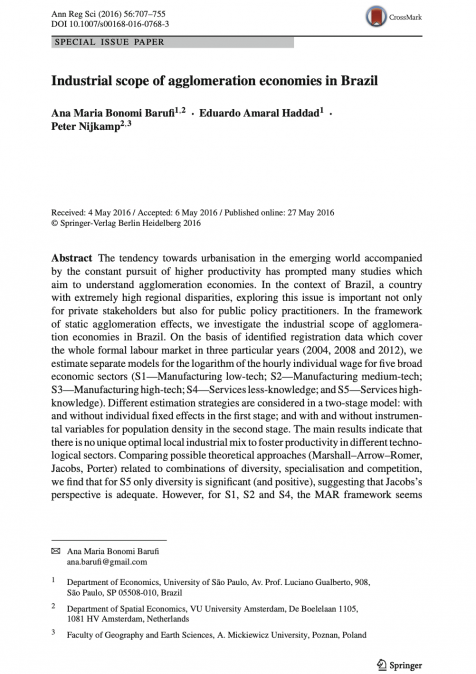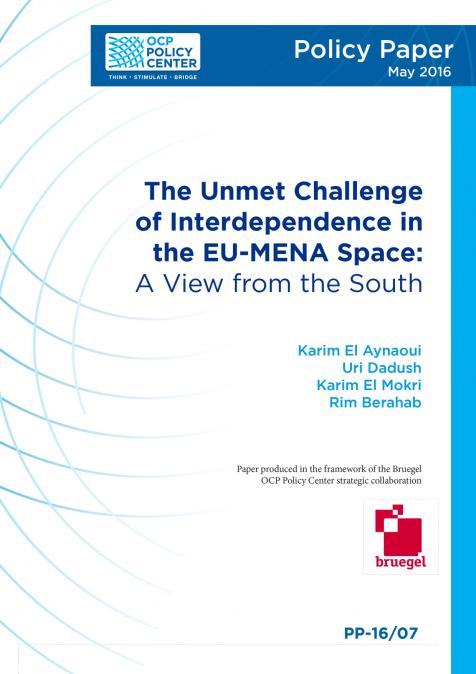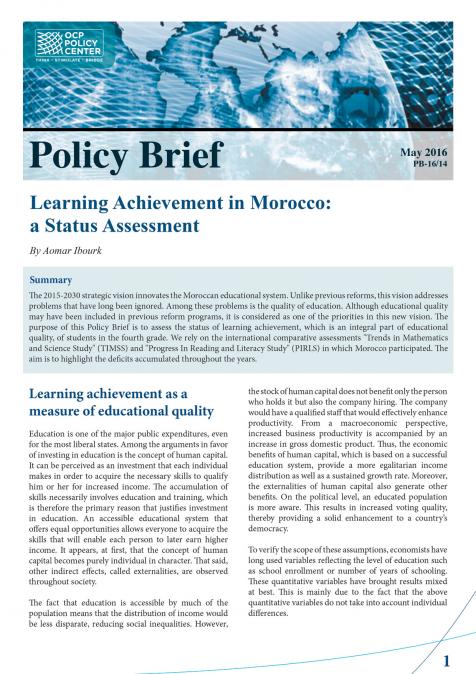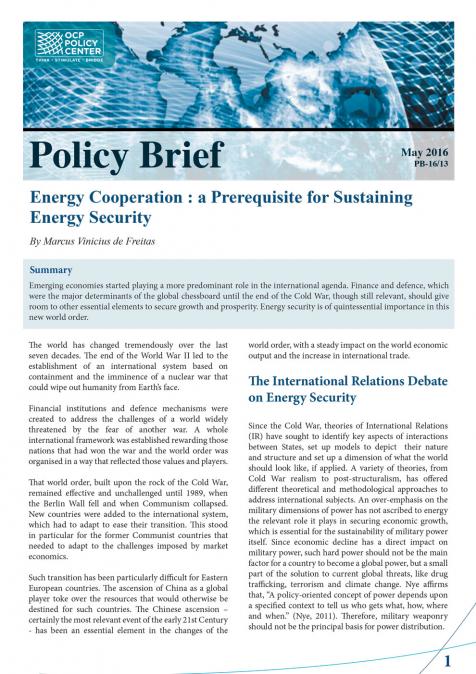Président
- Indermit Gill, économiste en chef et premier vice-président pour l'économie du développement, Groupe de la Banque mondiale
Présentateur
- Montek Singh Ahluwalia, ancien vice-président de la Commission de planification de l'Inde
Discutants
- Rim Berahab, économiste en chef, Policy Center for the New South (PCNS)
- Ingrid Gabriela Hoven, directrice générale, GIZ - Agence allemande de développement
- Lord Nicholas Stern, professeur et titulaire de la chaire IG Patel d'économie et de gouvernement, London School of Economics (LSE)
- Hasan Tuluy, associé principal, Centennial Group
RELATED CONTENT
-
Pierre-Noel GirauldJune 02, 2016Ce podcast est délivré par Pierre-Noel Girauld. Il est Professeur d’économie à Mines ParisTech et à Paris Dauphine. Membre fondateur de l’Académie des Technologies, membre du Conseil Scie ...
-
Jeffrey Alexander FrankelJune 01, 2016This podcast is performed by Jeffrey Alexander Frankel. He is professor of Capital Formation and Growth at Harvard University's Kennedy School; ...
-
Christophe GouelMay 30, 2016Ce podcast est délivré par Christophe Gouel. La volatilité des prix des denrées alimentaires a-t-elle des répercussions sur les politiques commerciales des pays ? Christophe Gouel est doc ...
-
May 30, 2016Ethiopia is located at the heart of the Horn of Africa. Torn between its position within the Greater Middle East (Culcasi 2008, 128 and Fukuyama 2008, 206) from one side, and Sub Saharan Africa on the other, this East African state is landlocked in a region marked by intense and long-standing political strife and conflicts, and is directly exposed to regional insecurity and political volatility. Against this unstable background, successive regimes and governments in Addis Ababa have ...
-
 AuthorsMay 27, 2016The tendency towards urbanisation in the emerging world accompanied by the constant pursuit of higher productivity has prompted many studies which aim to understand agglomeration economies. In the context of Brazil, a country with extremely high regional disparities, exploring this issue is important not only for private stakeholders but also for public policy practitioners. In the framework of static agglomeration effects, we investigate the industrial scope of agglomeration econom ...
AuthorsMay 27, 2016The tendency towards urbanisation in the emerging world accompanied by the constant pursuit of higher productivity has prompted many studies which aim to understand agglomeration economies. In the context of Brazil, a country with extremely high regional disparities, exploring this issue is important not only for private stakeholders but also for public policy practitioners. In the framework of static agglomeration effects, we investigate the industrial scope of agglomeration econom ... -
AuthorsSilvia ColomboMohamed El HarrakNicolò SartoriMay 27, 2016Energy is at the core of the remarkable current transitions in the global economy and geopolitics, and natural gas plays a crucial role in these processes. In this context of rapidly evolving trends at the market level and developing dynamics between regional and global actors, The Future of Natural Gas aims at analysing the role of natural gas in the future energy mix by considering several key factors: the ambitious climate policies agreed by the international community, cost issu ...
-
AuthorsMay 25, 2016This paper will take stock of the economic performance of Europe and the Arab world, examining how they can do better by working together. The paper pays special attention to the trade, investment, migration and energy linkages between the two regions, as well as those among the Arab countries, as well as how they can be improved to achieve better development. Whereas we present a southern perspective, with Arab countries as main focus, the purpose is to understand the constraints f ...
-
Nicolás de PedroMay 24, 2016This podcast is performed by Nicolás de Pedro. Central Asia is back on great powers’ agenda. The region plays a primary and decisive role in both China’s Silk Road Project and Russian-led ...
-
AuthorsMay 20, 2016The 2015-2030 strategic vision innovates the Moroccan educational system. Unlike previous reforms, this vision addresses problems that have long been ignored. Among these problems is the quality of education. Although educational quality may have been included in previous reform programs, it is considered as one of the priorities in this new vision. The purpose of this Policy Brief is to assess the status of learning achievement, which is an integral part of educational quality, of ...
-
AuthorsMay 17, 2016Emerging economies started playing a more predominant role in the international agenda. Finance and defence, which were the major determinants of the global chessboard until the end of the Cold War, though still relevant, should give room to other essential elements to secure growth and prosperity. Energy security is of quintessential importance in this new world order. ...







